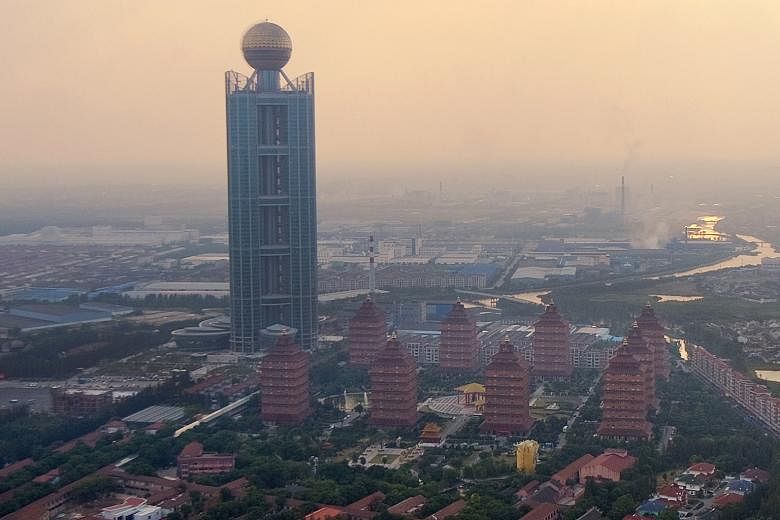NANJING • After walking out of his spacious villa, Mr Mei Zhenhua drives his Audi to a rice farm in Huaxi village, known as China's wealthiest village.
The 34-year-old former metallurgy engineer has lived the agricultural life for a year and a half, as one of seven "young smart intellectuals" selected by villagers to grow rice.
Huaxi, in eastern China's Jiangsu province, about 130km away from Shanghai, has been urbanised. With skyscrapers and a village-run aviation firm, Huaxi has accumulated wealth through the development of industries, ranging from steel and chemical fibre to banking and new energy.
However, villagers are no longer satisfied with the wealth generated from industrial development, even feeling embarrassed that agriculture has nearly died out.
But nobody wanted to eat produce from the village's 80ha of farmland as it does not taste good.
In a decision agreed by 2,600 villagers last year, 16ha of farmland was given to seven young people, college graduates aged 30 on average, to grow high-quality rice.
The young people were first sent to Asahi Noyu Farm in Japan to study how to grow high-quality rice, as none of them had farming experience.
Mr Mei, a graduate from China's prestigious Harbin Institute of Technology, said: "There is no secret in Japanese rice farming, only an artisan spirit in pursuit of perfection in each step of rice cultivation."
He said the problem with Chinese rice was a long-term focus on yield, rather than on taste and quality. Pollution has also damaged farmland.
Returning from Japan, the seven young farmers started growing rice in Huaxi in May last year, by levelling soil, selecting good seeds and growing seedlings.
To ensure the water was clean, they dug a small reservoir, where water is treated through three filtration procedures before irrigating the farm.
The experimental field yielded only 60 tonnes of rice last year, with a per-unit output of only half of a normal Chinese rice field. However, the rice won the gold award at the Jiangsu provincial rice appraisal and was soon sold out.
The village committee decided this year to give all of the village's 80ha of farmland to the seven farmers. The village committee has spent 50 million yuan (S$10.2 million) on the good rice cultivation programme, and will send more young people to study rice farming in partnership with the Japanese farm.
Huaxi party chief Wu Xie'en said: "Huaxi is after all a village. We cannot give up our agricultural roots."
XINHUA

